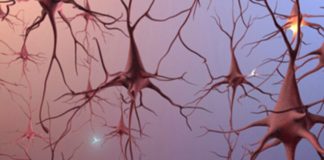Mitochondrial Dysfunction, Nutrition and Aging
By Ward Dean, MD
Every cell in the human body is packed with tiny organelles called mitochondria (Fig. 1). Mitochondria are often referred to as...
Translating Nature’s Library Yields Drug Leads for AIDS, Cancer, Alzheimer’s Disease
An ingredient, prostratin, derived from a medicinal tea traditionally brewed from tree bark by tribal healers on the South Pacific island of Samoa is...
Omega-3 Reduces ADHD Symptoms in New Animal Study
A new multidisciplinary study shows a clear connection between the intake of omega-3 fatty acids and a decline in ADHD symptoms in rats.
Researchers at...
UCLA Study Points to Iron as Cause of Alzheimer’s Disease
Alzheimer's disease has proven to be a difficult enemy to defeat. After all, aging is the No. 1 risk factor for the disorder, and...
High Glucose Levels May Increase Alzheimer’s Risk
Higher blood-sugar levels, even those well short of diabetes, seem to raise the risk of developing dementia, a major new study finds. Researchers say...
Gum Inflammation Linked To Alzheimer’s Disease
NYU dental researchers have found the first long-term evidence that periodontal (gum) disease may increase the risk of cognitive dysfunction associated with Alzheimer's disease...
Stress Hormone Could Trigger Mechanism for the Onset of Alzheimer’s
A chemical hormone released in the body as a reaction to stress could be a key trigger of the mechanism for the late onset...
Huperzine-A
Natural Club Moss Extract Shows Promise for Treating Alzheimer’s, Enhancing Memory and Alertness
By Jim English
Alzheimer’s Disease (AD) is a progressive degenerative disease that most...
Dementia Costs Top Those For Heart Disease Or Cancer, Study Finds
The monetary cost of dementia in the United States ranges from $157 billion to $215 billion annually, making the disease more costly to the nation than either heart disease or cancer, according to a new RAND Corporation study. The greatest economic cost of dementia is associated with providing institutional and home-based long-term care rather than medical services, according to the findings published in the April 4 edition of the New England Journal of Medicine.
Job Burnout Can Severely Compromise Heart Health
Americans work longer hours, take fewer vacation days, and retire later than employees in other industrialized countries around the globe. With such demanding careers, it's no surprise that many experience job burnout -- physical, cognitive, and emotional exhaustion that results from stress at work. Researchers have found that burnout is also associated with obesity, insomnia, and anxiety.
Chewing Ability Linked to Reduced Dementia Risk
Can you bite into an apple? If so, you are more likely to maintain mental abilities, according to new research from Karolinska Institutet in Sweden.
The population is aging, and the older we become the more likely it is that we risk deterioration of our cognitive functions, such as memory, decision-making and problem solving. Research indicates several possible contributors to these changes, with several studies demonstrating an association between not having teeth and loss of cognitive function and a higher risk of dementia.
Chewing Gum Helps You Concentrate for Longer, Study Suggests
Chewing gum can help you stay focused for longer on tasks that require continuous monitoring. This is the finding of new research by Kate Morgan and colleagues from Cardiff University due to be published in the British Journal of Psychology today, 8 March.





















